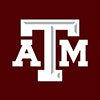The conference will be held on March 1, 2019 at the Physical Education Activity Program Building on the campus of Texas A&M University. The mission of this conference is to promote the inclusion of, and support for, individuals with physical and/or intellectual disabilities and disorders through activities and academia that aims to enhance their capabilities. This student-led conference provides academic and practical presentations, exhibits, and experiences that meet the interests and needs of individuals and groups with physical disabilities, or intellectual disabilities. The committee is seeking applications for presentations that share research, demonstrate an activity, offer an adaptive experience, host a workshop, or present an exhibitor booth.
Proposed presentations should highlight effective, innovative practices relevant to health, physical education, sport management, or kinesiology, while having a well-defined focus on individuals with intellectual disabilities, physical disabilities. The proposal should aim to promote healthy activity for people of all ages and abilities, to engage attendees in demonstrations and interactive experiences, to launch community involvement by introducing participants to program coaches, to discuss how to create and/or adapt programs for people with disabilities, and/or to connect academics, practitioners, organizations, and students for research and service opportunities. Presenters may offer more than one type of presentation, if desired, and may propose an idea not listed.
The different types of presentations are listed below. Examples of the different types of presentations from the 2018 Conference have been included as well. All proposals, except for poster presentations, are due November 15th, 2018 with poster presentations due December 1st, 2018,
Keynote Address
(45 minutes) – A formal message discussing the main idea of the conference, and how organizations and individuals can promote the mission of the Able, Active, and Adaptive Conference.
- Example Presentation: “The Language of Adaptation: How Words Affect Our Actions” by Kurt Podeszwa.
Abstract: The Inuit people have 50 words for what we call snow. That level of specificity means that they not only speak about snow differently than us, they also think about it differently. Our language forms how we think, and how we think affects our actions. This session will focus on how we think about active, adaptive, and ability. Kurt will focus on the internal and external language we use for adapting activities and for those with disabilities….or different abilities. Using his unique style of combining, video, lecture, small group and discussion. Kurt will lead participants on a journey of discovering how they think about adaptation and give them additional words to expand their thought process.
Lecture Presentation
(30 minutes) – Lecture-style presentations can range from in-depth scientific research to academic scholarly practices. Lectures include a Q&A portion.
- Example Presentation: “Disabilities and the Olympics” by Kevin Pearson of the USOC
Abstract: Part of maximizing growth in sport is recognize our own potential biases and how they could undermine productivity and cohesiveness in the world of athletics. Learn how the lack of awareness about our viewpoints, combined with cultural differences, affects how we view the world and treat others. See how diversity and inclusion affect sports with a particular focus on the Paralympic movement.
Workshop
(45 or 90 minutes) – Session focused on skill building or formal professional workforce training
- Example Presentation: Aggie Disability Awareness (ADA) Workshop by Dr. Megan Orsag
Abstract: Aggie Disability Awareness (ADA) Workshop is an interactive workshop designed to increase knowledge, awareness, and respect for people with disabilities among faculty and staff at Texas A&M University. The workshop is meant to promote strong dialogue about issues and information surrounding disability. All individuals are welcome to attend but attendance should never be mandated. In doing so, Aggie Disability Awareness will promote positive, equitable, accepting attitudes towards people with disabilities on campus.
Experience
(45 or 90 minutes) – Session including live action, interactive, or hands-on components that engages session participants.
- Example Experience: Sitting Volleyball
Description: Paralympian Kari Miller (who was also a keynote speaker) taught attendees how to play sitting volleyball, a paralympic sport that is an adapted version of volleyball.
Trade Show Vendor or Exhibitor Booth
Volunteer organizations, vendors of adaptive products and providers of adaptive services can set up booths to share information with attendees.
- Example Exhibitor: Aggie Adaptive Sports booth
Description: The Aggie Adaptive Sports organization set up a booth to attract new members and spread awareness about their organization.
Poster Presentation
(2 hours) – Open, gallery-style presentation where attendees will walk by presenters’ posters and discuss the scholarly information, best practices, initiatives, or works in progress that are being presented.
- Example Poster Presentation: “Improvement of QOL within the Neurological Population in an Adaptive Wellness Program” by Clayci Allen, EP-C
Abstract: There is ample evidence indicating the positive impact of exercise on quality of life (QOL). The direct relationship between QOL and exercise is indicated in healthy individuals as well as individuals with neurological dysfunction. With the support of TIRR Memorial Hermann’s Strength Unlimited (SU) Community Wellness Program, individuals can extend the continuum of care, improve QOL and optimize reintegration into the community.
Other
Additional types of presentations welcome! Share your idea.
- The proposed idea must be fully developed and coherent.
- The topic should be interesting, specific, and unique.
- A new or creative approach to an age-old topic is appropriate.
- Ideas must be topic-driven rather than product-driven.
- Presentations must be educational in nature and may not serve as an endorsement or advertisement for any product or service.
- Increasing quality of life, providing learning opportunities, and awareness for people living with disabilities and their caregivers
- Providing relevant curriculum and training through active and adaptive design and programs
- Exposing participants to new technologies, new possibilities, new solutions, and new opportunities to promote healthy living
- Demonstrating the benefits of designing organizations or products with disability in mind
- Teaching individuals and groups to recognize a disability is not an inability
- Other: Get creative!
